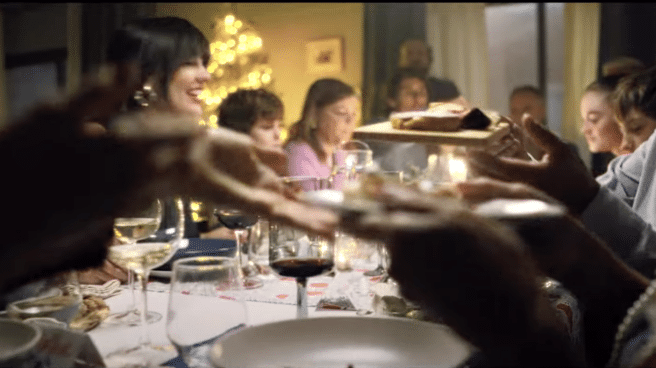

New Ikea Christmas promotion
IKEA presented its new Christmas campaign with a touch of humor, which tells how difficult it is to cope with the numerous obligations that we Spaniards have during the Christmas holidays.
Thus, the video tells the story Vallejo family who will be assisted by an international event planner to organize your Christmas as if it were an international summit itself: business lunches, Christmas events, buying Christmas Eve dinner, a parade… This organizer’s team will be responsible for drawing up a detailed calendar and agenda for this family to Don’t miss a single Christmas event. A plan that leaves the alien team exhausted and dazed.
In addition, he presented a study prepared in collaboration with Sigmados, “What if less Christmas was more Christmas?”, in which one of the main findings is that half of respondents experience stress at some point during these dates (49.3% ). Additional expenses It’s one of the most stressful factors (six in ten admit it), followed by buying Christmas gifts (54.2%) and overeating (47.9%) or cooking lunches and dinners (45.2%). It is also relevant that 40% feel stressed by having to see people they don’t want to see39.4% for unwanted conversations with family members and 30.9% for the number of obligations on the agenda.
IKEA and psychologist Ana Belen Medialdea have created a “Christmas Wellbeing Guide” with recommendations on how to better enjoy this time of year. Among the recommendations, it stands out, for example, that to combat stress in the face of additional expenses, it is advisable “Set a realistic budget for gifts and plan for maximum spending on purchases,” among other things. If cooking causes you stress, it is recommended that you “give yourself permission to be imperfect, because the pressure to achieve perfection and the need to be in control is a source of stress and anxiety.” He also offers advice on how to combat feelings of nostalgia after losing a family member. The manual states, among other things, that we should “feel sadness and pain, because when we avoid feelings, then the pain becomes stronger”; also “seek support from family, friends, or mental health professionals” or “find meaningful ways to honor and remember your loved one.”
In particular, IKEA wanted to analyze the stress resulting from planning and organizing Christmas events. When asked this question, 48% of respondents admitted that they had experienced this.
anxiety or depression It’s also present at Christmas, which is why 24.6% of those surveyed have experienced some type of mental health problem. 36.1% believe that social expectations and pressure during Christmas contribute to psychological problems or negative emotions.
The study wanted to delve deeper into the feelings experienced during these dates. So, 23% of respondents feel happy and 11% were lucky, but what’s striking is that 27.3% say nostalgia is their predominant state of mind during this period. The most significant negative feeling is sadness: 8.7% say they experience it.
On the other hand, the vast majority experience these dates like any other time of year, 65% say so, although 19.2% hate Christmas and for 16% it is their favorite time.
As for loneliness, 36.3% feel lonely at Christmas than at other times of the year. They are most influenced by memories of deceased people (66% of those who felt lonely, mainly for this reason). Other reasons for feeling lonely lag far behind: living away from family and friends (25.8%) or not having a circle of friends, a partner, children or parents (17.4%). Young people are the group that most believe they felt lonelier at Christmas than at other times of the year. In particular, this is confirmed by 40.6% of young people aged 16 to 29 years. Finally, 66.3% of respondents feel relieved that Christmas is over, and among people over 64 this figure rises to 78.1%.
Regarding conflicts at this time of year, 17.4% say they have more conflicts in their relationships with friendscouple or family than at the rest of the year, half of respondents say that their relationships worsen on these dates, and 39% admit that they have conflicts with their in-laws.
Among the favorite rituals of these dates are: have dinner or lunch with family (33.5%), decorating the house with Christmas items (12.5%) and spending time with friends (7.4%). It is significant that the ritual of eating with the whole family is especially important for people over 64 years of age (45.7% admit this).
Source: El Independiente